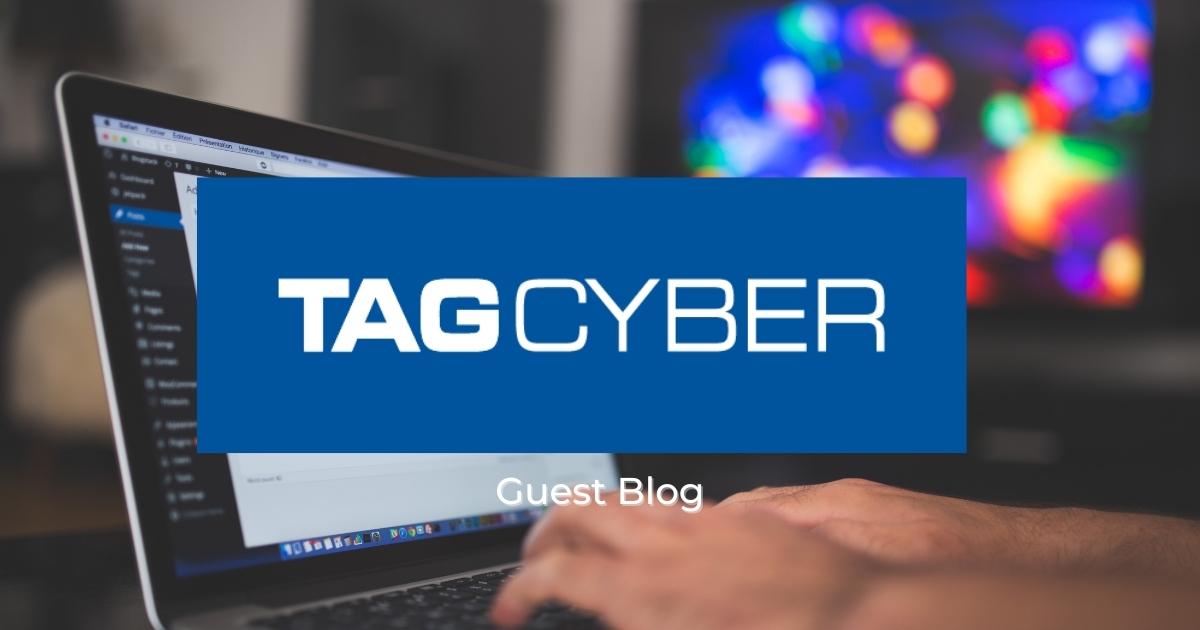Transforming Threat Data into Actionable Intelligence


Introduction
In today's digital age, the threat of cyber-attacks is greater than ever. Traditional security operations, which have focused on reactive measures such as patching vulnerabilities and responding to breaches, are no longer sufficient to meet the challenges of the modern threat landscape. As a result, security organizations are shifting their focus to proactive measures to stay ahead of emerging threats.
This shift towards proactive security operations is the focus of a new five-article series written by analysts at TAG Cyber. The series examines the latest trends and challenges for cybersecurity teams and explores the cutting-edge solutions that are helping security organizations become more proactive in their defense against cyber-attacks.
Anomali's solutions are important in helping security operations (secops) teams move from a reactive to a proactive security program. Anomali, a leading threat intelligence provider and incident management software, offers a viable solution. Anomali's platform enables security teams to quickly and easily identify and respond to emerging threats by providing real-time visibility into the latest cyber threats and vulnerabilities, allowing organizations to take proactive measures to protect themselves from potential attacks instead of simply reacting to breaches after they have occurred.
The series also delves into the strategies and technologies that can help CISOs and secops teams improve their operations. Anomali's platform is a key element in integrating threat intelligence with other technologies, such as Extended Detection and Response (XDR) and Attack Surface Management (ASM), to enhance the overall security posture of an organization. Additionally, Anomali's solutions assist with digital risk protection (DRP) in identifying and mitigating the risks associated with third-party vendors and partners.
In summary, the series provides an in-depth look at the latest strategies and technologies to help CISOs and security teams become more proactive in their defense against cyber attacks. Anomali's solutions play a crucial role in this shift and assist organizations in identifying and mitigating emerging threats, integrating with other technologies, while addressing the skills gap.
Article 1: Transforming Threat Data into Actionable Intelligence
Christopher R. Wilder, TAG Cyber
This article is the first in a series of guest blogs written by TAG Cyber analysts in conjunction with our colleagues at Anomali. Our five-part series of blogs focus on how threat-intelligence management integrates with extended detection and response (XDR) to increase operational efficiencies in an enterprise security operations environment and drive actionable prevention, detection, and response. The commercial Anomali platform demonstrates how integration between threat intelligence and XDR can work in the field.
Threat intelligence is divided into three main categories: strategic, operational, and tactical.
- Strategic threat intelligence focuses on understanding the overall threat landscape and identifying long-term trends. It informs strategic decisions and helps organizations understand the potential risks they face.
- Operational threat intelligence identifies and responds to specific threats in real-time. It informs an organization’s day-to-day operations and helps protect against immediate threats.
- Tactical threat intelligence provides detailed information about specific threats, such as the tools, techniques, and procedures used by attackers. It also apprises tactical decisions and helps organizations respond to incidents.
Threat intelligence is essential to any security program, providing organizations with the information they need to identify and respond to potential threats proactively. Threat intelligence provides operational and tactical threat intelligence to help organizations respond to specific dangers in real-time and to deliver detailed information on threats, such as the tools, techniques, and procedures (TTP) used by attackers. Tier 1 threat intelligence platforms like Anomali's ThreatStream solution provide all three types of threat intelligence to help organizations understand the overall threat landscape and identify long-term trends. By coalescing all three types of threat intelligence on a single platform, security operations centers (SOC) can make available to analysts at the appropriate time, allowing them to make informed decisions about potential threats. Automation and machine learning helps operationalize threat intelligence by automating certain processes and providing more accurate and efficient analysis. A proactive security strategy should begin with a thorough understanding of the threat landscape.
Leveraging Threat Intelligence for Proactive Cybersecurity
We believe cybersecurity leaders need to be more proactive, and threat intelligence is a key component. So, how can security operations teams incorporate contextual, actionable, and, most importantly, trustworthy intelligence information into their organization?
Threat data allows businesses to be more proactive when dealing with cybersecurity threats by enabling SOCs to take preemptive actions to detect, avoid and mitigate cyberattacks before they happen. An effective threat intelligence program incorporates information on the threat landscape, including Who, How, and Why organizations are targeted, further enabling security teams to focus on inbound or developing threats, contextualize the consequences, and provide actionable recommendations to mitigate and respond to these attacks. Every business must contend with numerous threat vectors and actors; therefore, SOC teams must identify and address the attack surface and enable continuous monitoring, detection of threats, and response processes to the attack surface to succeed against adversaries.
Not All Threat Intelligence Sources Are Equal
Hundreds of data sources deliver threat intelligence; some are better than others. The importance of quality threat-intelligence data feeds security teams to gain visibility and garner relevant information about adversaries, including their strategies, approaches, and TTP. It assists in mitigating various attack vectors that may occur in different contexts, including malware variants, malicious botnets, vulnerability-based threats, and phishing, to name a few. The goal is to offer vital context and information to the organization, thereby allowing them to proactively identify breaches or indications of compromise (IOCs) in their infrastructure from the core to the edge and endpoints.
Traditionally, threat intelligence data is unstructured. To be effective, forward-thinking organizations combine internal sources, such as SIEM, XDR, SOC teams, and customer/supply chain telemetry, with external sources, including professional communities, news, blogs, and the dark web. Parsed data is analyzed and bundled to provide an actionable or contextual feed.
Understanding the Benefits and Challenges of Threat Intelligence in the Enterprise
Threat intelligence is vital to an organization's cybersecurity strategy as it allows businesses to identify and mitigate potential threats proactively. Effective threat intelligence programs enable security teams to focus on inbound or developing threats, contextualize the consequences and provide actionable recommendations for mitigation and response. An effective threat intelligence program includes information on the threat landscape, including the actors behind the threats, their methods, and motivations. A comprehensive threat intelligence program enables teams to identify and address the attack surface and enable continuous monitoring, detection, and response processes.
Threat intelligence has many benefits, including identifying direct threats to the enterprise, alerting security teams to competitive dangers, brand reputation, and intellectual property theft, and allowing them to be proactive when dealing with physical, cyber, and political security challenges. However, implementing threat intelligence also brings challenges, such as too much information, choosing the right information sources, and a lack of processes and skills. To be effective, SOC teams must find ways to triage, process, and prioritize the information they receive quickly. Furthermore, security teams must ensure that the data feeds they incorporate relevant, contextual, pertinent, and actionable. Interpreting this data requires trained personnel with the tradecraft to turn data into actionable insights.
Conclusion
Cyber threat intelligence is actionable or contextual information related to threat actors and vulnerabilities presented to enhance security operations, make better decisions, and improve security posture. Actionable threat intelligence increases an organization's ability to increase its situational awareness and countermeasure integration. When discovering vulnerabilities that are dangerous to an organization, threat intelligence goes beyond IOCs and common vulnerabilities and exposures (CVE) scores. It is important for security operation teams to choose their intelligence provider carefully. Security teams must choose a data provider that delivers context, integration, and actionable information for security teams to make well-informed decisions.
Anomali's ThreatStream is a viable threat intelligence platform that provides organizations with real-time visibility into cyber threats and enables them to quickly identify, investigate, and respond to potential dangers. Their platform integrates various security tools and data sources, allowing organizations to correlate, enrich, and prioritize threat data.
Overall, Anomali's threat intelligence platform is designed to help organizations better understand and respond to the constantly evolving cyber threat landscape.
FEATURED RESOURCES

Anomali Cyber Watch: Notepad++ Attack, RAT Uses Hugging Face, Microsoft Office Flaw and more



